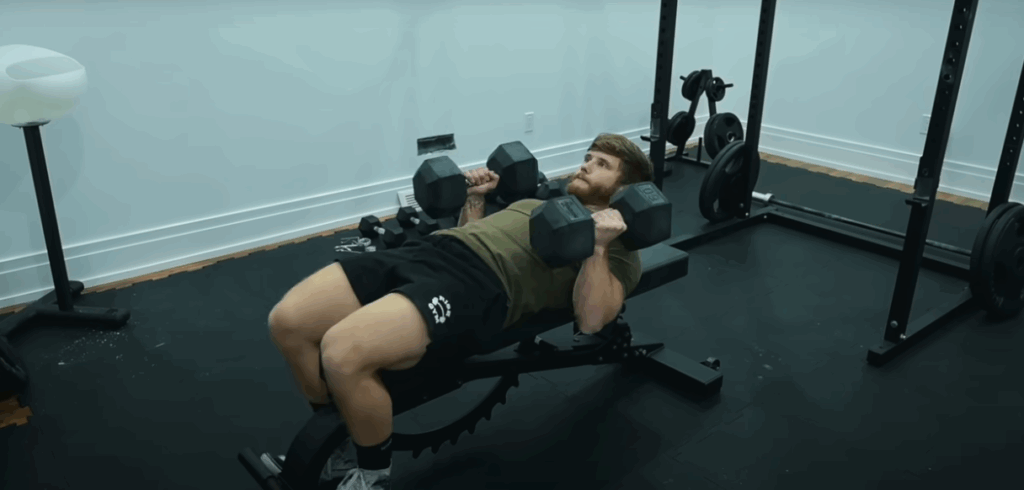Introduction
Gaining muscle naturally—without steroids or performance-enhancing drugs—can feel like an uphill battle. Many lifters hit the gym week after week but fail to see real results. The issue often isn’t effort—it’s the lack of a smart, strategic approach. If you want to maximize your gains as a natural athlete, this article will guide you through proven principles of hypertrophy, recovery, and nutrition that truly matter.

1. Prioritize Progressive Overload—But With Patience
At the heart of muscle growth lies progressive overload—gradually increasing the demands on your muscles over time. This doesn’t just mean lifting heavier weights. You can also apply overload by:
- Increasing reps or sets
- Improving form and range of motion
- Reducing rest periods strategically
- Slowing down tempo for more time under tension
However, for natural lifters, progress will be slower compared to enhanced athletes. Focus on measurable strength gains in key lifts like squats, deadlifts, rows, and presses over months—not weeks. Think long-term progression.
2. Train Close to Failure, But Don’t Burn Out
Training intensity is non-negotiable. If you consistently stop your sets too far from failure, you won’t generate the mechanical tension needed for growth.
Natural lifters should train most sets in the 6–20 rep range, and aim to stop 0–2 reps shy of failure on compound movements, occasionally pushing to failure on isolation lifts like curls or lateral raises.
Too much training to failure can hurt recovery, so structure your workouts wisely. A good rule of thumb? Push hard, but not to the point where you can’t perform again in a couple of days.

3. Volume Matters—But Only the Effective Kind
Many lifters make the mistake of piling on too many sets, chasing “more” as the solution. But if your sets lack intensity, they’re just junk volume—extra work with little stimulus and more fatigue.
For most natural trainees, 10–20 high-quality sets per muscle group per week is ideal. Focus on effective reps—those last few hard reps that actually stimulate growth. Cut anything that doesn’t contribute to that.
4. Master Technique and Exercise Selection
The best exercises for you aren’t necessarily the ones you see on social media. They’re the ones that:
- Match your limb length and joint mechanics
- Allow a full range of motion
- Provide a deep stretch and peak contraction
For example, if barbell benching strains your shoulders, dumbbell presses or a slight incline machine press may be better. Build a routine around big compound lifts, and use isolation movements to target weak points and increase volume safely.
5. Don’t Skip Recovery—That’s When Growth Happens
Muscle isn’t built during training—it’s built between sessions. Without adequate recovery, your progress will stall or even reverse.
Make sure to:
- Get 7–9 hours of quality sleep per night
- Take rest days seriously—active recovery is fine, but no max-effort lifting
- Deload every 4–8 weeks to reset fatigue
- Track signs of overtraining: irritability, loss of motivation, reduced performance
Natural athletes especially depend on optimal recovery, since they don’t have the hormonal assistance that PED users enjoy.

6. Eat to Grow: Nutrition Is Half the Battle
Training stimulates muscle growth, but nutrition provides the building blocks. If you’re not eating enough—especially protein and total calories—you’ll struggle to gain lean mass.
Key principles:
- Protein: Aim for 0.7–1 gram per pound of body weight daily. Prioritize complete sources like meat, eggs, dairy, or plant-based blends.
- Calories: Eat in a small surplus (250–500 kcal/day) to support muscle growth without excessive fat gain.
- Meal Timing: Distribute protein evenly across 3–5 meals per day. A pre- and post-workout meal rich in protein and carbs can boost performance and recovery.
- Supplements (optional): Creatine monohydrate, whey protein, and vitamin D (if deficient) can help—but food always comes first.
7. Stay Consistent—That’s the True Secret
You can have the perfect plan on paper, but without consistency, nothing works. Building muscle naturally takes months and years, not weeks.
Track your lifts. Measure your progress with photos, bodyweight, and strength metrics. Adjust when things stall, but stick with the core principles. Avoid program hopping, crash dieting, or overreacting to temporary plateaus.
In the long run, those who show up, eat well, and recover smartly—win.
Conclusion: The Natural Lifter’s Advantage
While natural bodybuilding has its challenges, it also has its rewards. You’ll build not only a physique but also discipline, resilience, and a deep understanding of your own body. Without relying on shortcuts, your gains will be real, lasting, and sustainable.
Follow these science-backed strategies—progressive overload, effective training volume, recovery, and proper nutrition—and you’ll be well on your way to becoming the strongest version of yourself.



